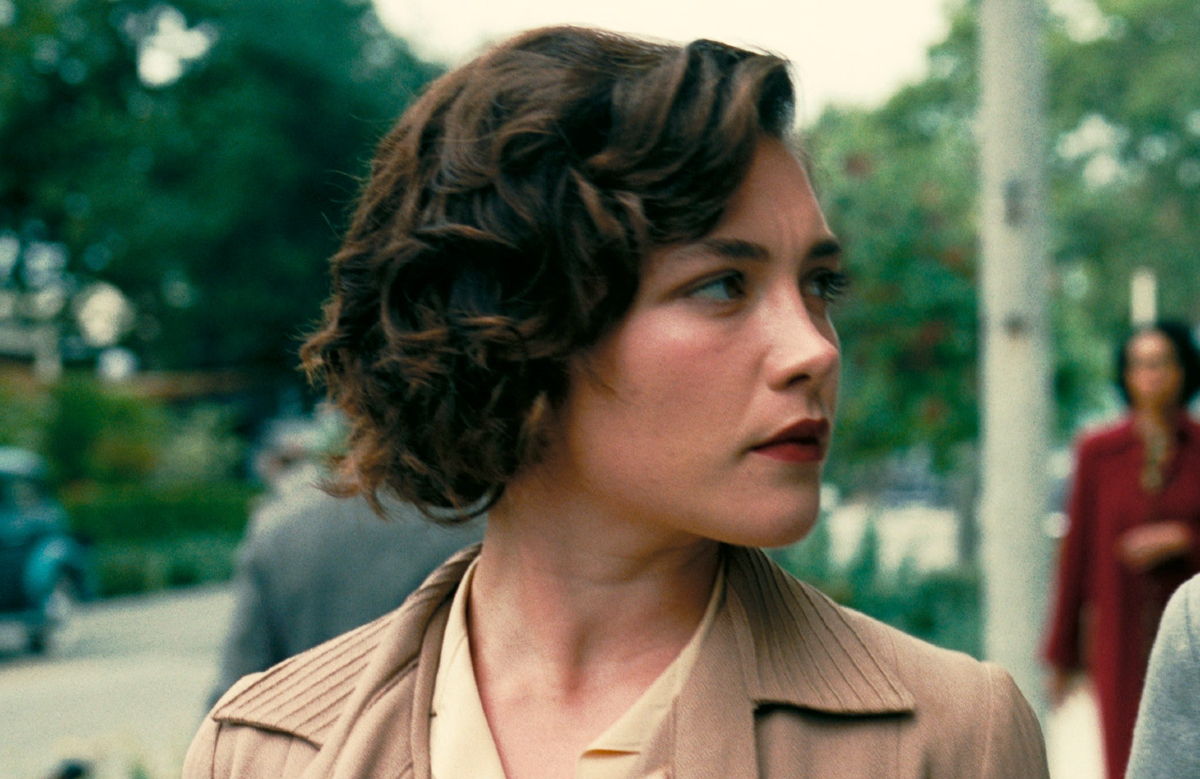Jean Tatlock Is More Than a Tragic Footnote in ‘Oppenheimer’

Oppenheimer, the biopic about theoretical physicist J. Robert Oppenheimer (Cillian Murphy), arrived in theaters on July 21 and has sparked renewed interest in the complicated historical figure. One character bound to especially intrigue viewers is Jean Tatlock. Played by Florence Pugh, the role caused a bit of a stir before Oppenheimer even premiered, when the film became Christopher Nolan’s first in 20 years to earn an R-rating—for moments of “prolonged nudity” and sex scenes featuring Pugh and Murphy. Many viewers weren’t aware of Oppenheimer’s colorful love life, which included multiple affairs that later came back to haunt him when investigators delved into his past for alleged communist ties.
While internet users joked about the unexpected sexual content, the chemistry between Pugh and Murphy is palpable and reflects the real-life relationship between Oppenheimer and Tatlock. While their relationship was tempestuous, those close to Oppenheimer declared that “Jean was Robert’s truest love.” Additionally, Tatlock was more than just Oppenheimer’s love interest; she was also a quite brilliant woman in her own right. In the 1930s, she was accepted into the prestigious Stanford Medical School and became a psychiatrist after graduating, a path very few women were taking during that time period.
As depicted in Oppenheimer, Tatlock’s life ended quite tragically. However, the circumstances leading up to her death aren’t fully detailed, and viewers may be left wondering why Oppenheimer believes himself responsible for it.
Content warning: the following contains descriptions of self-harm
The tragic story of Jean Tatlock
Tatlock passed away January 5, 1944, at the age of 29, and the cause of her death was ruled suicide. Her father had stopped by her home for a visit but became worried when she didn’t answer the doorbell. After forcing his way into the home, he discovered her drowned in the bathtub. Tatlock had long struggled with depression and had left a suicide note in her home. An investigation found that she had barbiturates (depressant drugs) and chloral hydrate in her system, as well as evidence of alcoholism. Her death was officially ruled a suicide, with the motive listed as unknown. However, there are some who question whether her death really was a suicide.
At the time of Tatlock’s death, her phone had been tapped and she was under surveillance by the FBI due to her membership in the Communist Party. She became involved in the party in the 1930s and even began writing and reporting for the communist publication Western Worker. Meanwhile, it was her relationship with Oppenheimer that put her on the FBI’s radar.
Tatlock and Oppenheimer ended their relationship in 1939, after which Oppenheimer married his wife, Kitty (played by Emily Blunt). In 1944, as Oppenheimer was being investigated for Communist ties, his affair with Tatlock was discovered. U.S. Army agents followed Oppenheimer on a visit to Tatlock, during which he spent the night at her apartment. This led to Tatlock also being investigated by the FBI, with intelligence agents positing that Oppenheimer was using Tatlock to give U.S. secrets to the Soviet Union. This led to a conspiracy theory that Tatlock’s suicide was staged and that she was actually murdered by American intelligence agents.
However, it is more likely that Tatlock took her own life following long-term struggles with her mental health, which may have included issues regarding her sexuality. After her death, letters and accounts from friends revealed that Tatlock was attracted to women and may have even had relationships with several women, including Oppenheimer’s landlady. Given the time period, though, Tatlock felt she had to repress her sexuality, believing it was a “condition” that she had to overcome. This may have been one of the reasons why she refused to marry Oppenheimer, despite him proposing to her twice. It may have also contributed to Tatlock’s clinical depression and eventual suicide.
We’ll never know exactly why Tatlock ended her life, but Oppenheimer acknowledged that she was in a bad place when they last saw each other and that she was undergoing psychiatric treatment. Meanwhile, there has never been any evidence to support the theory that Tatlock’s death was actually an assassination.
(featured image: Universal Pictures)
Have a tip we should know? tips@themarysue.com